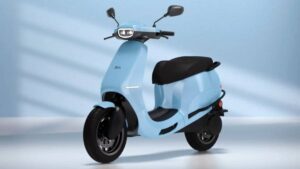In the quest for convenient and eco-friendly urban mobility, portable electric scooters have swiftly emerged as a popular and practical solution.
These sleek, compact vehicles are revolutionizing the way people navigate bustling city streets, offering a blend of efficiency, portability, and sustainability.
This article delves into the features, advantages, and considerations surrounding portable electric scooters, shedding light on their role in shaping the future of personal transportation.
Key Features of Portable Electric Scooters
- Compact and Lightweight Design: Portable electric scooters are designed with urban commuters in mind. Their foldable and lightweight structure allows users to easily carry them onto public transportation, stow them in the trunk of a car, or store them under a desk, making them an ideal choice for those on the go.
- Electric Propulsion: Unlike traditional scooters powered by internal combustion engines, portable electric scooters rely on electric propulsion systems. This not only eliminates tailpipe emissions but also provides a quiet and smooth riding experience.
- Foldable Mechanism: The foldable design of these scooters enhances their portability. With a quick and easy folding mechanism, users can transform the scooter into a compact form, making it effortless to carry and store when not in use.
Advantages of Portable Electric Scooters
- Last-Mile Connectivity: Portable electric scooters bridge the gap between public transportation and final destinations, providing a convenient solution for the “last mile” of a commute. This aids in reducing reliance on personal vehicles and contributes to a more sustainable urban transportation ecosystem.
- Eco-Friendly Commuting: With zero emissions and energy-efficient electric motors, portable scooters contribute to environmental conservation by minimizing air pollution and reducing the overall carbon footprint associated with short-distance commuting.
- Cost-Effective Transportation: Portable electric scooters offer a cost-effective alternative to traditional transportation methods. Their low maintenance requirements, absence of fuel costs, and potential incentives contribute to significant savings for users.
Considerations for Users
- Range and Battery Life: Users should consider the scooter’s range and battery life, ensuring it meets their daily commuting needs. Advances in battery technology continue to improve the range of portable electric scooters, addressing concerns related to battery longevity.
- Infrastructure Support: The widespread adoption of portable electric scooters is contingent on the availability of charging infrastructure. Cities need to invest in charging stations to support the growing demand for electric micro-mobility solutions.
Conclusion
Portable electric scooters represent a transformative shift in urban transportation, offering a practical, sustainable, and efficient means of personal mobility.
As cities embrace the need for eco-friendly alternatives and efficient last-mile connectivity, the rise of portable electric scooters signifies a significant step toward a more sustainable and interconnected urban future.



